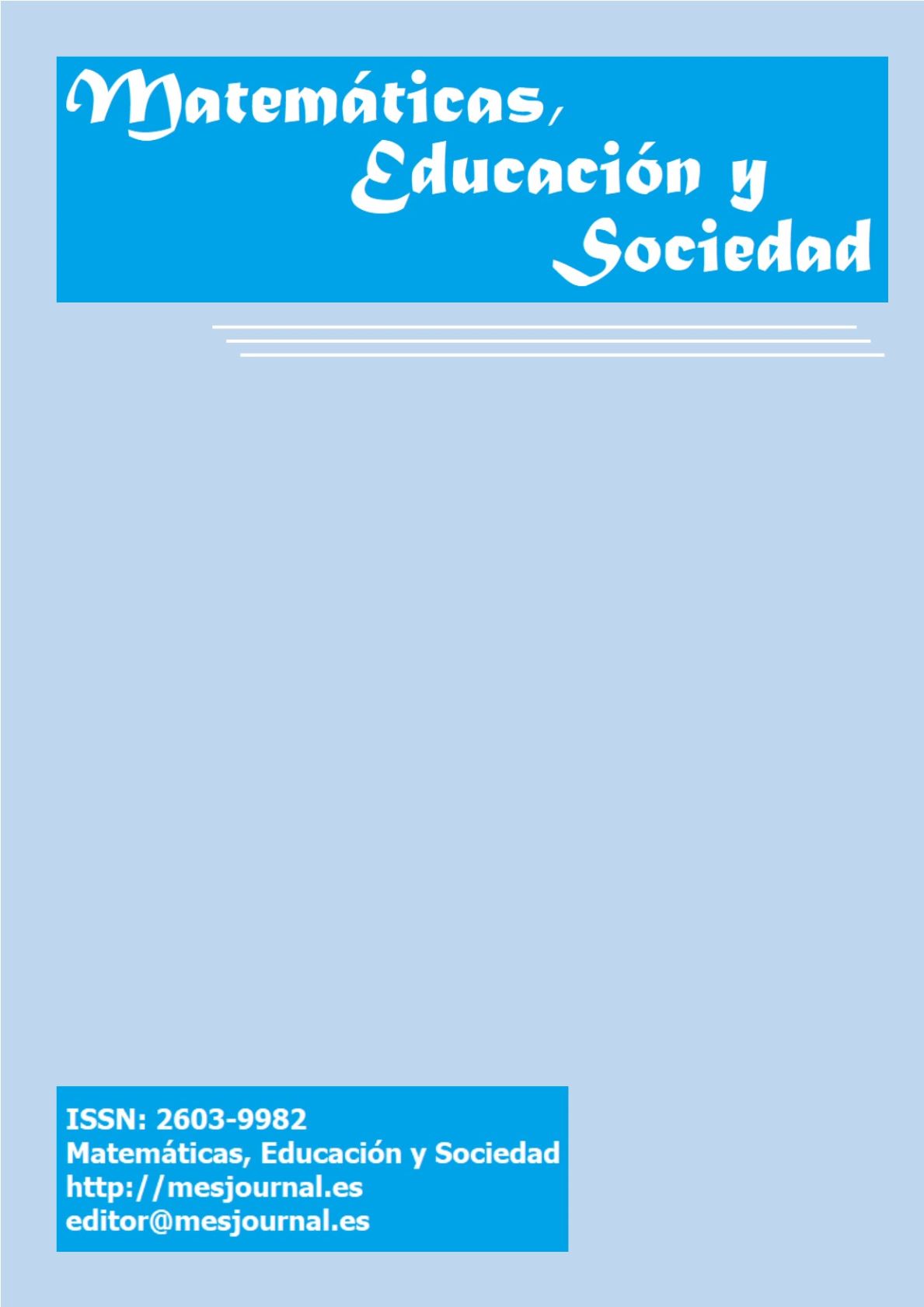Education in times of uncertainty. A look at the performance of mathematics teacher
Main Article Content
Abstract
The performance of mathematics teachers, from the first to the fifth year of general secondary education, is analyzed, emphasizing their strategies, difficulties faced, doubts and the assessment of the learning achieved by their students, based on the actions followed during confinement as a consequence of the covid19 pandemic. The research was developed from a qualitative interpretive approach. To collect the information, virtual interviews were used with the teachers who voluntarily participated in the study. The results revealed that the performance, commitment and responsibility of the teacher, with their students, were decisive for the fulfillment of the study program and the successful completion of the school year. Likewise, the teachers agreed to express serious difficulties for distance work and the mathematics assessment.
Downloads
Article Details
This work is licensed under a Creative Common License (CC BY 3.0 ES)
References
Camarero-Figuerola, M., Tierno-García, J.M., Barrios-Arós, C. yIranzo-García, P. (2020). Liderazgo y éxito escolar en contextos desfavorecidos: La perspectiva de los directores. Revista de Educación, 388 (abril-junio),167-192. Recuperado de: http://www.educacionyfp.gob.es/dam/jcr:73c99a8d-5ece-47da-9d82-f282a421c38d/07camareroesp-ingl2.pdf
Cantoral, R., Ríos, W., Reyes, D., Cantoral, E., Barrios, E., Fallas, R. et al. (2020). Matemática Educativa, transversalidad y COVID–19. Revista Latinoamericana de Investigación en Matemática Educativa (RELIME), 23(1), 1-17. Recuperado de: http://relime.org/index.php/repositorio/2020/23-1/2020a/529-2020esp01/file
Duro, E. y Kit, I. (Eds.) (2007). Propuestas para superar el fracaso escolar. Todos pueden aprender. Buenos Aires, Argentina: UNICEF.
El País (Julio 30, 2020). Enseñar durante la pandemia: docentes con más trabajo, pero con pocas herramientas. Encuesta del Suteba entre más de 5 mil maestros de Buenos Aires, Argentina. Recuperado de: https://www.pagina12.com.ar/secciones/el-pais
Freire, P. (2004). Pedagogía de la autonomía. Sao Paulo: Paz e Terra.
Gill, S. y Thomson, G. (2020). Ethical Education. Towards Ecology of Human Development. Cambridge, UK: Cambridge University Press.
Kerres, M. (2020). Against All Odds: Education in Germany Coping withCovid-19.Postdigital Science and Education, 2(3), 1-5. Recuperado de: https://link.springer.com/article/10.1007/s42438-020-00130-7
Martínez-Vicente, M., Suárez-Riveiro, J. M. y Valiente-Barroso, C. (2020). Implicación estudiantil y parental en los deberes escolares: diferencias según el curso, género y rendimiento académico. Revista de Psicología y Educación, 15(2), 151-165, Recuperado de: https://doi.org/10.23923/ rpye2020.02.193.
Mercado, G. (2020). Las matemáticas en los tiempos del Coronavirus. Revista Educación Matemática, 32(1),7-10. Recuperado de: http://www.revista-educacion-matematica.org.mx/descargas/vol32/1/01REM32-1.pdf
Minho, R., Rivera-Vargas, P. yPasseron, E. (2020).(Opinión).Ha llegado el momento de unir esfuerzos: hacia una educación con sentido. El diario de la educación, (23 septiembre2020). Recuperado de: https://t.co/BFPqvUrnYm
Moreno, I. y Ortiz, J. (2008). Docentes de educación básica y sus concepciones acerca de la evaluación en matemáticas. Revista Iberoamericana de Evaluación Educativa, 1(1),140-154
MPPE (2020). Programa “cada familia una escuela”. Ministerio del Poder Popular para la Educación. Recuperado de: http://cadafamiliaunaescuela.fundabit.gob.ve/
Ortiz, J. y Dos Santos, A. (2011).Mathematical modelling in secondary school. A case study. En G.Kaiser , W. Blum, R.B. Ferriy G. Stillman (Eds.), Trends in Teaching and Learning of Mathematical Modelling. (pp. 127-135). Netherlands: Springer.
Perrenoud, P. (2008). La construcción del éxito y del fracaso escolar (4ta edición). Madrid: Morata.
Real Sociedad Matemática Española (2020). Recomendaciones y recursos para la enseñanza matemática ante la crisis del COVID-19. Recuperado de: https://www.rsme.es/2020/03/recomendaciones-y-recursos-para-la-ensenanza-matematica-ante-la-crisis-del-covid-19/
Sánchez, J. y Iglesias, M. (2012). El desempeño de los docentes de matemática y sus necesidades formativas. Revista Paradigma, 33(1), 155-173. Recuperado de: http://ve.scielo.org/pdf/pdg/v33n1/art09.pdf
Suárez, N., Fernández, E., Cerezo, R., Rodríguez, C., Rosário, P. y Núñez, J.C. (2012). Tareas para casa, implicación familiar y rendimiento académico. Aula Abierta, 40(1), 73-84.
Warnick, Bryan y Silverman, Sarah (2011). A Framework for ProfesionalEtics Courses in Teacher Education. Journal of Teacher Education. 62(3), 273-285.
Webster, R.S. yWhelen, J. (2019). Rethinking Reflection and Ethics for Teachers. Singapore: Springer.
Wijaya, T.T. (2020). How chinese students learn mathematics during the coronavirus pandemic. International Journal of Educational Research and Innovation (IJERI), 15, 1-16. Recuperado de: https://doi.org/10.46661/ijeri.4950
York, T.T., Gibson, C. y Rankin, S. (2015). Defining and Measuring Academic Success. Practical Assessment, Research y Evaluation, 20(5),.Disponibleen: http://pareonline.net/getvn.asp?v=20yn=5
Zhu, X. y Liu, J. (2020). Education in and After Covid-19: Immediate Responses and Long-Term Visions. PostdigitalScience and Education. Recuperado de: https://doi.org/10.1007/s42438-020-00126-3

